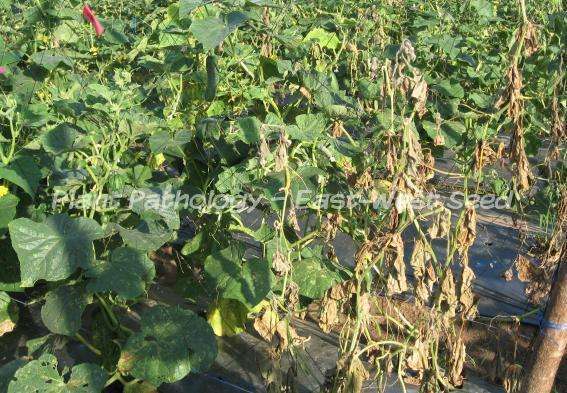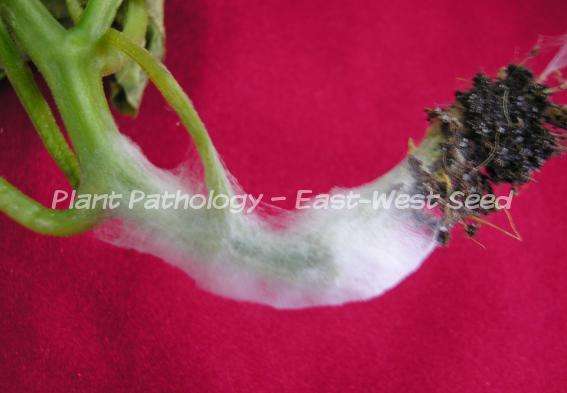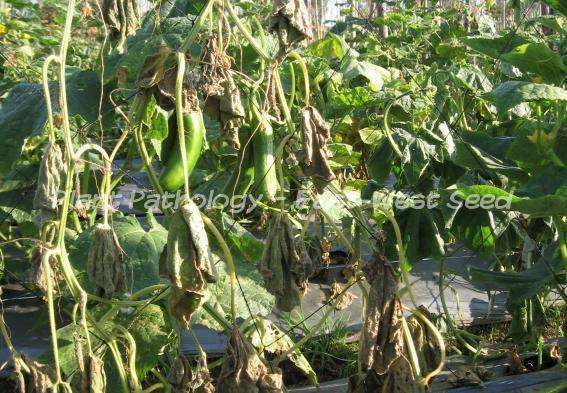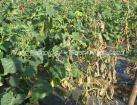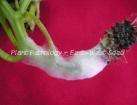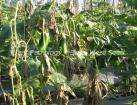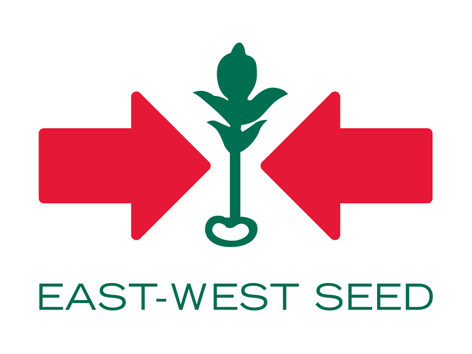Causal Agent:
Oomycete (Pythium spp.)
| Characteristic Symptoms: | |
 |
The part of the stem near the soil surface turns brown, becomes water-soaked, soft and slender and then collapses. |
 |
Young seedlings topple down due to root rotting and weakened stem. |
 |
In pre-emergence damping-off, germination of seed is greatly reduced. |
| Conditions for Disease Development: | |
 |
The disease is common in cool, wet soils. |
 |
All crops are susceptible usually at seedling (3 weeks after sowing) or early vegetative stage. |
 |
Over watering or poor drainage, over crowding of plants, excessive application of nitrogen, stressful environmental conditions and presence of nematodes may contribute to susceptibility. |
 |
The pathogen is disseminated through contaminated irrigation water, splashing rain or heavy rainfall. |
| Management and Control: | |
 |
Use pathogen-free/certified seeds.
|
 |
Drench nursery beds/seedling trays with chemical fungicides like promocarb hydrochloride (e.g. ProplantⓇ, PrevicureⓇ) or fosetyl aluminum (e.g. AlietteⓇ), metalaxyl+mancozeb (e.g. Ridomil Gold MZ 68 WGⓇ, Apron XL 350 ESⓇ), mancozeb (e.g. Attain M-80Ⓡ, Achem Mancozeb 80 WPⓇ, Micron 80 WOⓇ, VanzebⓇ). |
 |
Clean thoroughly seedling trays and pots and soak in 10 mg/L chlorine. |
 |
Avoid over watering or excessive moisture. |
 |
Expose beds to solar radiation to minimize fungal population. |
| References: | |
| Compendium of Cucurbit Diseases (1996) by the American Phytopathological Society | |
To view other diseases, click here.
Need more help? Ask the Doctor.



